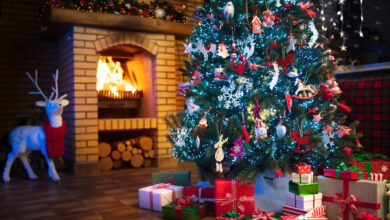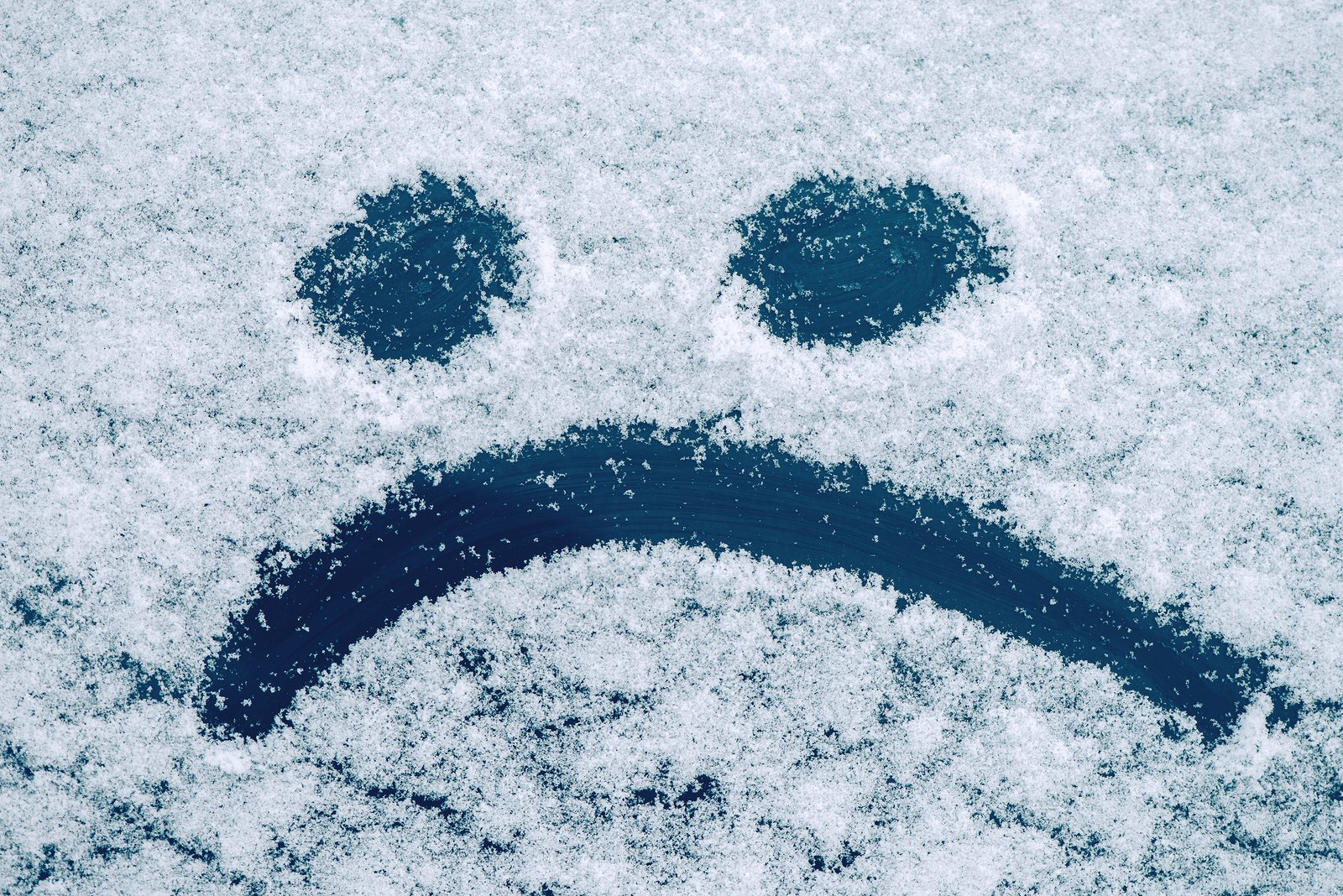Local resident, students work for recognition of Native American Code Talkers
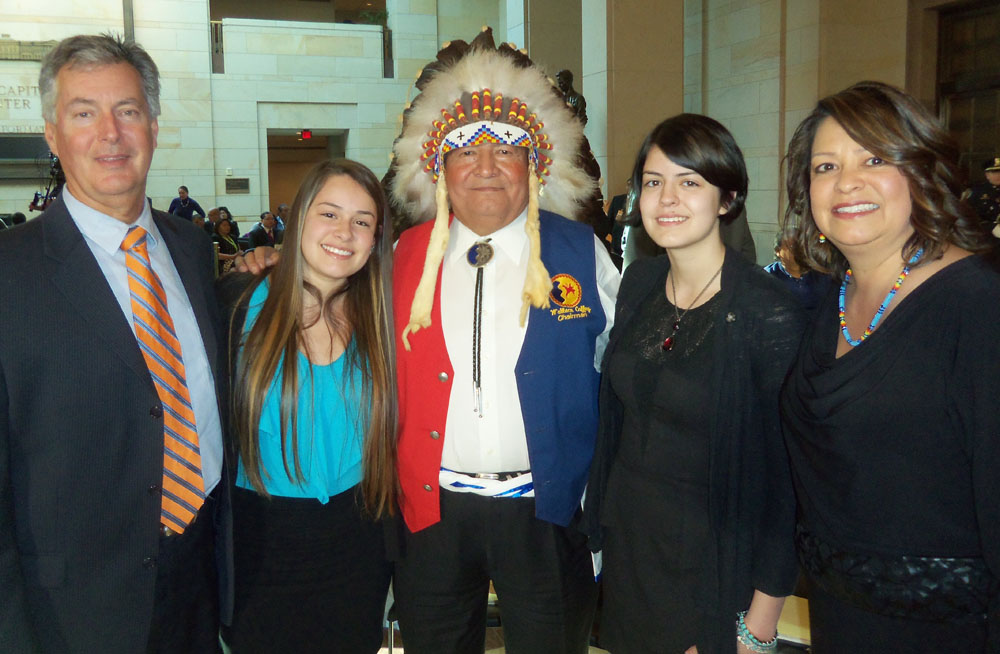
When Native American Code Talkers were honored recently in Washington, D.C., members of a local family with blood ties to one of the Lakota Code Talkers from the Standing Rock Sioux Tribe were at Emancipation Hall in the U.S. Capitol to witness the ceremonies.
Jim and Andrea Page, their college-age daughters Alana and Alexa of Spencerport; Andrea’s mother, Mary Blackcloud Monsees of Spencerport; and Andrea’s aunt and uncle, Claude and Kristine Black Cloud of Churchville, traveled to Washington, D.C. together for the November 20 Congressional Gold Medal Ceremony.
Andrea’s great uncle, John Bear King, was among 216 code talkers from 33 tribes recognized with the highest honor Congress can bestow for their heroic bravery during both World War I and World War II.
The Native American Code Talkers transmitted codes during the World Wars which were based on their own native languages. The enemies were never able to crack the codes, Andrea says.
“They saved hundreds of thousands of lives,” Mary Monsees explains, “and the war ended sooner because of them.”
Recognition long in coming
The recognition has been a long-time in coming. Navajo Code Talkers – who served in the largest numbers – received gold medals more than ten years ago. It was not until 2008 that Congress passed legislation authorizing gold medals for the other 33 tribes. Reports say it took the Pentagon years to find which tribes were eligible because of the lack of records about the code talkers.
Mary said the ceremonies were very emotional and filled her with an intense “… appreciation and gratitude for recognition finally given for the great thing our people had done. There are three dialects in the Sioux language,” she notes, “Lakota, Dakota, and Nakota. They used an inter-mix of all three for the code talking.”
She remembers her Uncle Johnny well, having grown up on the Standing Rock Reservation in Kenel, South Dakota.
“We visited each-other’s homes,” Mary says. “He was a kind man, laid-back and gentle. He was a horseman, a rancher.”
John Bear King died not long after the war, in 1949. Mary’s brother, Claude Black Cloud, was not born until after the death of his uncle. Claude was very impressed with the Washington ceremonies on Nov. 20.
“It was a pleasant, wonderful experience,” he says. “There were a lot of tears of joy.”
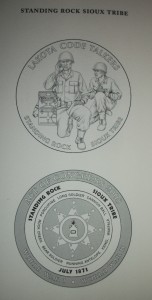 Official ceremonies
Official ceremonies
Andrea Page explains that following the Gold Medal ceremony at the Capitol, there was a Silver Medal ceremony at the American Indian Museum at the Smithsonian. Each code talker’s family received a silver medal (John Bear King’s went to one of Andrea’s cousins in attendance). A third ceremony was held in the U.S. Senate offices with representatives and senators from South Dakota.
The family especially enjoyed the final ceremony of the day and Claude noted those who spoke were very well-informed about the contributions of the Lakota Code Talkers. “They knew what they were talking about,” he said. “They were so sincere.”
Most of the code talkers are now deceased and Andrea Page says one surviving code talker, 96-year old Edmond Harjo, a Seminole, was in attendance at the ceremonies.
The work of the code talkers was kept classified until the late 1960s and Andrea and her mother never heard about Uncle Johnny’s work or Indian code talking until 1994 when Mary’s cousin sent her a newspaper article about John Bear King’s WWII service.
Andrea Page says her great-uncle fought in the Pacific theater during the war. There were seven Lakota Code Talkers and John Bear King was part of the 302nd Reconnaissance Troop, First Cavalry Division, which was with General Douglas MacArthur when the Japanese surrendered, she says.
During the Gold Medal Ceremony at the Capitol, Native American Congressman Tom Cole spoke of the unique battlefield advantage the code talkers gave the U.S. military. He noted that Native Americans enlist at a higher rate than any ethnicity in the country.
“We’ve always been defenders of family and faith,” Mary and Claude concur.
Native Americans serve in large numbers
“Many, many Native Americans are involved in the military,” Andrea adds, “Native Americans have stepped up to defend their country in great numbers.”
During WWI, the Native Americans who served were not even recognized as U.S. citizens, Mary notes. Citizenship did not come until 1924.
Mary also learned recently that her Uncle George Sleeps From Home served as a code talker in WWI. She remembers staying at his home every Sunday when her family would travel ten miles by horse and wagon to get to church.
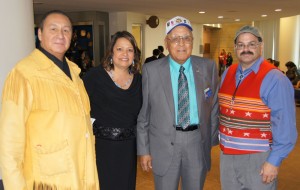
Mary, Claude and the Page family were very encouraged during the ceremonies November 20 to see so many young people in attendance. The code talkers are now, “… heroes for our young people,” they said. “You could feel the pride.”
During the Gold Medal ceremony, Navy Adm. James A. Winnefeld, Jr., vice-chairman of the Joint Chiefs of Staff, said throughout history, military leaders searched for the perfect code that could not be broken by the enemy. “It was our code talkers who created voice codes that defied decoding,” he said. “Our code talkers’ role in combat required intelligence, adaptability, grace under pressure, and bravery – key attributes handed down by their ancestors.”
Jim Page noted the humility and stoicism of the Native Americans who have so selflessly given so much to this country which, at times, has not treated them well.
The code talkers “had to worry about the enemy and the troops in their own unit,” Andrea Page explains, and were often, “working behind enemy lines.”
In fact, some reports have noted that because of the critical role of the code talkers, the enemy would specifically target them to be captured or killed.
Andrea is the collector of her family’s history and has worked for twenty years to research and document the work of the Native American Code Talkers, including the role her own great uncle played.
She visited the home of Lakota Sioux Code Talker Jack Langan (Teton Jack) in Jackson Hole, Wyoming, as part of her research. He encouraged her to continue. She traveled to the National Archives, following every lead she could find and by the year 2000, had connected with people who were working to lobby Congress to recognize the Sioux Code Talkers for their service.
In 2004, Andrea’s research was used by Don Loudner, Commander of the Native American Indian Veterans Association, when he testified before Congress in the continuing effort to get recognition for Native American Code Talkers.
Again in 2006, Andrea and her mother, along with Loudner, represented the Sioux Nation in Washington, D.C., meeting with senators and representatives to lobby for a bill to recognize all code talking groups. It was signed in 2008 by President Bush.
Others get involved in research
Along the way, Andrea even involved her sixth-grade students at Cosgrove Middle School in Spencerport in the effort.
Around 2005, “during our persuasive writing unit, our team of sixth-graders wrote letters to our senators at that time. I’d like to say thank you to that class, and remind them that words are powerful,” Andrea says. “They were part of the efforts of many hoping to gain recognition for the code talkers.”
A publisher is currently reviewing a book Andrea has written about the code talkers. It is written for the young-adult non-fiction market, she says.
During their trip to Washington, Andrea and her Uncle Claude were also able to visit the U.S. Mint and learned about the process of making the medals.
“It was the largest medal ceremony the U.S. Mint has ever done,” Andrea says, “and it’s ongoing as they still don’t have all the code talkers’ names.”
“The Mint was fantastic,” Claude says. The family was able to order their own Lakota Code Talker bronze medals.
In his comments on November 20, vice chairman Winnefeld called the code talkers great warriors whom we can best honor not just with the medals of honor, “but also with our own efforts to continue leveraging our nation’s diversity and to forever honor our veterans,” – something Andrea Page, her mom, uncle, entire family, and her students have been doing for decades.
Provided photos


